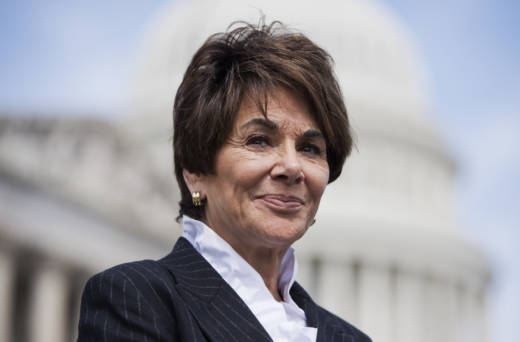"It's not uncommon for companies to contribute more to members of a committee that can regulate that business," said Laura Curlin, Data Director for MapLight, a non-profit that researches money in politics.
But a deeper look at how these California committee members have dealt with Facebook shows that those campaign contributions haven't necessarily translated into a rubber stamp for legislation that the social media giant supports or opposes.
Facebook has lobbied Congress on dozens of bills, dealing with issues ranging from immigration and tax cuts to patent reform and data privacy.
According to the Center for Responsive Politics, the company spent $1.3 million on the lobbying efforts since 2009.
"You have a lot of lobbyists," Republican Senator Dan Sullivan of Alaska told Zuckerberg at Tuesday's joint hearing of the Senate Judiciary and Commerce committees. "I think every lobbyist in town is involved in this hearing in some way or another."
A KQED analysis of the bills that Facebook has lobbied on in the last 10 years shows that while the seven California congressmembers on the committee have aligned themselves with Facebook more often than not, they have opposed the company on some of its top legislative priorities.
Support or opposition was measured in floor votes and sponsorship of legislation.
Take Democrat Anna Eshoo, whose district includes Facebook's Menlo Park headquarters. Since 2009 she's received $51,050 in campaign donations from the company, second in the entire Congress only to Democratic Leader Nancy Pelosi from San Francisco.
Eshoo has stood with Facebook to oppose President Trump's border wall, and strengthen digital privacy laws.
But she's also voted against Facebook-backed bills on trade and patent reform, and efforts to ease communication between tech companies and law enforcement.
"When I think a company is right I will work with them," Eshoo said. "If I don't agree with them, I'm up front with them."
For Eshoo, that means weighing support for her districts' tech giants (which also includes Google) with the interests of smaller startups.
She remembers a recent presentation that Google made to her about a piece of their legislative agenda, to which she told the company "If that's in place, Google would never have been born."
The split in votes also reflects the ideological diversity of Facebook's own platform: the company has aligned with Democrats on immigration bills, and with Republicans on issues like taxation.
Rep. Doris Matsui, a fellow veteran of the Energy and Commerce Committee has voted in line with Eshoo on Facebook-backed bills.
Rep. Jerry McNerney, also a long-time member of the Energy and Commerce Committee, has gone even further in his opposition to patent reforms that Facebook has sought in Congress, including a 2013 effort to weed out lawsuits from so-called 'patent trolls.'
The lone California Republican on the committee, Mimi Walters, has not voted against any Facebook-backed bills since joining Congress in 2015. Unlike most of her Democratic colleagues on the committee, she has supported tax cuts and free-trade bills that Facebook lobbied for, and hasn't had to vote yet on more liberal immigration legislation typically favored by the company.
Comments from the members before Wednesday's hearing indicate that while Facebook's contributions to California's booming economy are appreciated, it's political contributions won't let it off the hook from questioning.
"I think that they need to be questioned about what it means to be a corporate citizen," Eshoo said. "What kind of responsibilities do innovators have? Should every user of Facebook be monetized?"
Zuckerberg may have to answer that question during today's House hearing.

